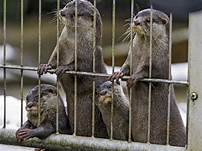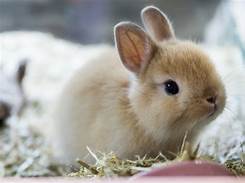Are Otters Good Pets? The Truth About Keeping Otters as Pets
Otters are playful, curious, and intelligent animals that have captured the hearts of many people worldwide. With their adorable looks and playful antics, it's easy to understand why some might consider keeping otters as pets. However, before you make the decision to bring an otter into your home, it's important to understand the realities of otter ownership and whether they truly make good pets.

Owning an Otter as a Pet: What to Know
Otters are wild animals, and their suitability as pets is a subject of ongoing debate. Here are some key factors to consider before deciding if an otter is the right pet for you:1. Legal and Ethical Considerations:
In many countries, it is illegal to keep otters as pets. In some areas, permits or licenses may be required. Even where it is legal, it's crucial to consider the ethical implications of keeping a wild animal in captivity.2. Specialized Care:
Otters have unique dietary, habitat, and behavioral needs. Providing them with adequate care can be challenging and expensive. They require a varied diet, regular access to water for swimming, and a spacious and enriched environment.3. Temperament and Behavior:
Otters can exhibit unpredictable behavior, especially during mating season or if they feel threatened. While they are often playful and social, they can also be aggressive and destructive.4. Training and Socialization:
Training an otter is challenging due to their independent nature. They might not respond to traditional training methods designed for domestic pets. Socialization with humans and other animals requires careful handling and supervision.5. Veterinary Care:
Finding experienced veterinarians who specialize in treating otters can be difficult. Specialized veterinary care can be costly, and some common otter illnesses lack readily available treatments.Why Otters Might Not Be Suitable as Pets
While otters may seem appealing as pets, there are several reasons why they are generally not considered suitable:1. Wild Animal Instincts:
Otters are wild animals and retaining their natural instincts, such as hunting, swimming, and territorial behavior, can pose challenges in a domestic setting.2. Destructive Behavior:
Otters are known for their playful and curious nature, which can lead to destructive behaviors in a home environment. They might chew on furniture, damage belongings, and create messes.3. Complex Social Needs:
Otters are highly social animals that thrive in family groups. Keeping a single otter as a pet may lead to loneliness, stress, and behavioral problems.4. Unpredictable Temperament:
Otters can exhibit unpredictable behavior, especially during specific times or when feeling stressed or threatened. This can potentially pose safety risks for owners and others.5. Health Risks:
Otters can carry diseases and parasites that can be transmissible to humans. Additionally, their bites can cause serious infections.Conclusion
While otters are fascinating and captivating creatures, they are not suitable pets for most people. Their complex needs, wild instincts, and potential risks make them challenging and potentially dangerous companions. Before considering an otter as a pet, it's crucial to thoroughly research, understand the legal implications, and consult with experts in otter care. Ultimately, the welfare of the animal should always be the top priority in making such decisions.Declaration: All article resources on this website, unless otherwise specified or labeled, are collected from online resources. If the content on this website infringes on the legitimate rights and interests of the original author, you can contact this website to delete it.





